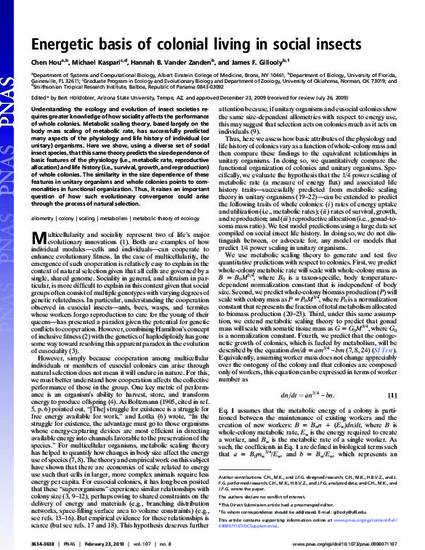
Understanding the ecology and evolution of insect societies requires greater knowledge of how sociality affects the performance of whole colonies. Metabolic scaling theory, based largely on the body mass scaling of metabolic rate, has successfully predicted many aspects of the physiology and life history of individual (or unitary) organisms. Here we show, using a diverse set of social insect species, that this same theory predicts the size dependence of basic features of the physiology (i.e., metabolic rate, reproductive allocation) and life history (i.e., survival, growth, and reproduction) of whole colonies. The similarity in the size dependence of these features in unitary organisms and whole colonies points to commonalities in functional organization. Thus, it raises an important question of how such evolutionary convergence could arise through the process of natural selection.
- Allometry,
- Colony,
- Metabolic Theory Of Ecology,
- Metabolism,
- Scaling
Available at: http://works.bepress.com/chen-hou/7/
